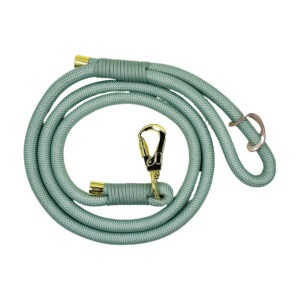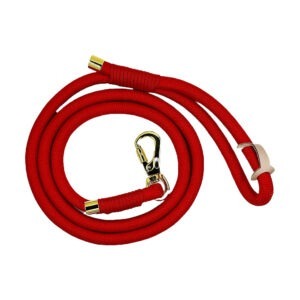Labrador Retrievers, with their boundless energy, endearing personalities, and sociability, rank among the most popular dog breeds worldwide. Their exuberance for life makes them ideal companions for many families. As a Labrador owner or prospective owner, it’s paramount to understand their dietary and exercise needs, as these factors significantly contribute to their overall health and well-being. In this guide, we delve into the specifics of diet and exercise for Labrador Retrievers at different life stages, discuss common health issues related to diet and exercise, and explore the behavioral impacts of these lifestyle elements.
Understanding the Labrador Retriever
Labrador Retrievers hail from Newfoundland, where they assisted fishermen by retrieving fish and pulling nets from the icy waters, their dense, water-resistant coats providing insulation. This working heritage explains their high energy levels and love for water. These dogs are prone to several health issues such as obesity, hip and elbow dysplasia, and heart disease, many of which can be managed or even prevented with an appropriate diet and sufficient exercise.
Understanding a Labrador’s health needs begins with acknowledging that these dogs were bred for hard work and have an innate desire to please. This combination can make them prone to overeating and weight gain, especially if they don’t receive enough physical activity. This means a Labrador Retriever’s diet must be carefully managed, and they must get sufficient exercise.
Some of our latest products...
Dietary Needs of Labrador Retrievers
Feeding a Labrador retriever isn’t just about filling their food bowl; it’s about providing a balanced diet that fulfills their nutritional needs at every life stage. Labrador puppies grow rapidly, and their diet needs to support this growth with adequate protein and fat. Once they reach adulthood, their dietary needs change. While protein remains vital, they need a balanced intake of nutrients to maintain an ideal weight and support an active lifestyle.
Senior Labradors have a different set of dietary needs again. Their diet should be rich in nutrients but lower in calories since their activity levels might decrease. Omega-3 fatty acids are crucial at this stage to support joint health and cognitive function.
When considering a Labrador’s diet, it’s essential to understand that diet can significantly impact a Labrador’s health and behavior. Overfeeding or providing an unbalanced diet can lead to obesity – a common problem in Labradors. Similarly, a diet deficient in necessary nutrients can lead to health issues and behavioral problems such as hyperactivity or excessive lethargy.
Exercise Needs of Labrador Retrievers
Labrador Retrievers are high-energy dogs that thrive on physical activity. Without adequate exercise, they can easily gain weight, leading to obesity and related health problems. But exercise for a Labrador is about more than just physical health; it’s also about mental stimulation. These intelligent dogs need to keep both their bodies and minds active.
Labrador puppies have a lot of energy, but because they’re still growing, they need shorter, more frequent bouts of exercise. Adult Labradors, on the other hand, require substantial exercise – typically over an hour a day. This can be a combination of walks, playtime, and training exercises. As Labradors age, their exercise needs will change. Senior Labradors may not have the same energy levels as their younger counterparts, but they still benefit from regular, gentle exercise.
Just as with diet, exercise can significantly impact a Labrador’s health and behavior. Regular physical activity helps prevent health issues like obesity and joint problems and can help a Labrador maintain a healthy heart.
Fallstudier
Real-life experiences often offer the most profound insights. Consider Jake, a Labrador Retriever who suffered from obesity due to overeating and lack of exercise. Jake’s health began to decline as he developed early-stage hip dysplasia. But with a strictly controlled diet and an exercise regimen, Jake managed to shed the excess weight. Not only did his overall health improve, but his hip dysplasia symptoms also became more manageable.
In another case, Bella, a senior Labrador Retriever, became lethargic due to insufficient exercise and began gaining weight. However, once her owners initiated a regimen of gentle daily walks and a diet rich in essential nutrients but lower in calories, Bella became more energetic and managed to achieve a healthy weight.
Slutsats
The health and happiness of a Labrador Retriever depend largely on the diet they consume and the amount of exercise they receive. By understanding these needs, Labrador owners can contribute significantly to their furry friend’s quality of life. By making an effort to understand these needs and implementing suitable diet and exercise routines, you can ensure that your Labrador Retriever stays healthy, active, and happy through all stages of their life.
Ultimately, being a pet parent to a Labrador Retriever is about providing love, care, and meeting their unique needs. Knowing how to feed and exercise your Labrador appropriately is a critical aspect of that care. A healthy Labrador Retriever is a happy one, and a happy Labrador Retriever means a happy home.
Vanliga frågor
What is the best diet for a Labrador Retriever?
The best diet for a Labrador Retriever is balanced and nutrient-rich, catering to the specific needs of the breed. It should contain a healthy mix of proteins, carbohydrates, fats, vitamins, and minerals. Keep in mind that dietary needs change with age, so what works for a puppy may not work for an adult or senior dog. Always consult with a vet to determine the optimal diet for your Labrador.
How much exercise does a Labrador Retriever need?
Labrador Retrievers are an active breed and require a significant amount of exercise to maintain their physical and mental health. Typically, adult Labradors should have at least one hour of exercise per day, but this can be split into two or more walking or play sessions. Puppies and seniors require different amounts of exercise, so always tailor your dog’s exercise routine to their specific age, health, and energy levels.
How do I prevent my Labrador Retriever from becoming overweight?
Prevention of obesity in Labrador Retrievers involves a combination of a balanced diet and regular exercise. Overfeeding and lack of exercise are common culprits of obesity in this breed. Monitor your dog’s food intake and ensure they are getting enough physical activity each day. Regular vet check-ups can also help keep track of your dog’s weight and health.
Are there specific foods that Labrador Retrievers should avoid?
Yes, several foods are harmful to Labrador Retrievers, like most dogs. These include chocolate, onions, garlic, grapes, raisins, caffeine, alcohol, and xylitol (a sweetener often found in sugar-free foods). High-fat foods can also lead to pancreatitis in Labs. Always check if a food is safe before sharing it with your dog.
My Labrador Retriever seems to always be hungry and is prone to overeating. What can I do?
Labrador Retrievers are known for their hearty appetites, which can lead to overeating if not monitored. Feed your Labrador portion-controlled meals and avoid free-feeding. High-fiber foods can make your dog feel fuller without adding excessive calories. Mental stimulation can also distract them from constant eating. If the problem persists, consult your vet, as it could be a sign of a medical issue.
Referenser och vidare läsning
For a deeper understanding of your Labrador Retriever’s needs, consider consulting resources like ‘Your Labrador Retriever Puppy Month by Month’ by Terry Albert, ‘The Labrador Handbook’ by Pippa Mattinson, and the many online resources available from trusted veterinary and Labrador-specific websites. Always remember, when it comes to your Labrador Retriever’s health, don’t hesitate to consult with a vet. They can provide guidance tailored to your specific dog’s needs, ensuring they live the happiest, healthiest life possible.





